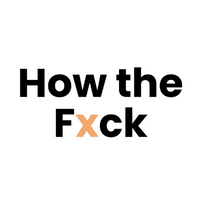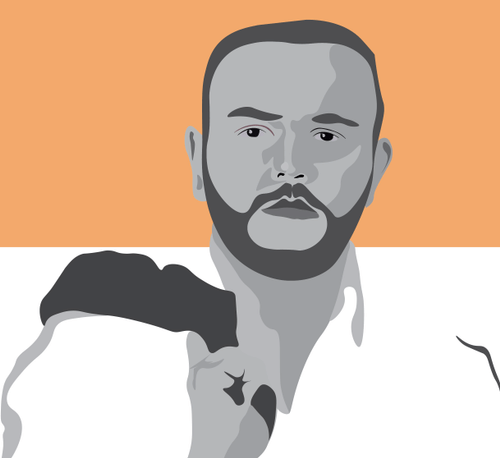Partnerships are a win-win way to increase brand awareness and improve your value proposition. Ali talks us through identifying valuable partners and how to win them.
A golden rule of marketing is to be empathetic to your customers: what do THEY want to read at the moment, how can we add value to THEIR lives.
But, their lives have turned upside down recently. They have new priorities, challenges, and states of mind, and it's highly likely that your customers want something different from your brand right now.
As companies scramble to stay empathetic and win new customers authentically, could partnerships be a winning strategy?
In this interview with Ali Shahrestani, we discuss how building partnerships with other industry actors is a shortcut to growth.
Ali walked us through why partnerships are valuable and lets us into the secret of his five-step process to winning any partnership deal.
The benefits of creating a partnership with another company include:
- A fast bond of trust that leads to increased cooperation with the other company to achieve business goals.
- Increased brand awareness: an authentic reason to shout about your business activity. Partnerships are an excellent PR opportunity and also tap into your partners' following.
- If you choose correctly, a partnership will extend your service and thus help you build a stronger value proposition.
Ali is primarily the cofounder and CMO of Peyk, a London-based courier platform that allows anyone to ship anything, instantly across the city. Peyk has 5,000 riders registered to their mobile app, and utilises the Uber model to manage supply and demand for services.
He's also the founder of Arcwin, an architectural visualisation studio.
You’re the CMO of more than one company, how are you managing that?
It is very challenging because the fields are so different: one of them is in architecture, and one is a courier service. But, what I've realized is that when you do the same line of work in different industries, you learn the same topics but from multiple angles, which adds to your overall learning and skill. I find that I also have the opportunity to use the networks from one to help the other businesses. There’s a lot of commonalities.
So your journey into partnerships started with Peyk being voted in the top 5 of European startups by Startup Grind. What happened there?
Startup Grind is the world’s largest startup community at the moment. We applied to be part of their European conference in London and were chosen in the top 20 European startups in 2019 out of around 5,000 applications. Part of the programme meant we were trained by Google mentors, who they’re partnered with, to refine pitching technique in time for the competitions final. We ended up coming fifth, but I learned so much as a CMO in the process.
What was your big 'aha!' moment after Startup Grind?
My biggest takeaway was learning how to approach other businesses with a partnership offer. Within the contest, there were startups and entrepreneurs from all over working on ideas just within their own country. So, for example, there was another startup at the same event that created a new solution to keep hot food hotter for longer, for hot food transportation.
There were so many solutions like that that were really great. Great business models, strong growth, perfect in terms of application, but the solution had never been seen in the UK. I saw quite clearly how those solutions could be integrated into Peyk's platform- and I saw that it was much more valuable and cost-effective for us both to partner up.
Usually, they were more than happy to look at new geographies if they could clearly see the value-add.
So the trick is to partner with companies that align with your customers needs and extend your service through an integration. What sort of value-add could people offer here to convince a new partner?
You have to show that the results of partnering with you will earn them money but also that it is something beyond money for them. For example, what we’ve done a few times at Peyk is to offer to help other companies establish in the UK by doing their legal work, setup and licenses. Essentially opening up a new market for them that would have otherwise been very costly to open.
We also help our partners grow and market themselves within the UK. The best way I’ve found to do that is to offer to incorporate their products in your own service. Ultimately, if there are clear synergies between you and a company from another country, then the most cost-efficient way for you to start getting their products to your own customers is a partnership.
Tell them about the opportunity in your own market, and help them take advantage of it by partnering with you. We’ve also grown our revenue streams this way by negotiating a percentage of the additional revenue.
Do you have an example from Peyk?
Yes, our most recent partnership was with a drone delivery company. They have offices and operations in multiple countries at the moment but not yet in the UK. So I approached them and offered to help them enter the C2C delivery market over here, including the legal work that goes into establishing their company. Peyk is currently the fastest delivery platform in London (using just bicycles and motorbikes) and our customers ship tons of packages to each other every day, so we have expertise in this area and we know the other players.
If I had wanted to purchase an individual drone, that would’ve cost me around £50,000. But as a partner, I spent around £1,000 in legal fees and now have five drones for free running pilots in-house. As well as being their first customer in this country, we will also receive a percentage fee for any drones we help them to sell in the UK in the future.
A big part of their launch is PR, and this kind of partnership is great for PR for both companies. Overall, a partnership like this is a win for both companies because they cheaply established in a new country, hit the ground running and made some PR noise. On our side, we’ve cheaply piloted new technology and benefited from the PR, too.
What's the nature of that partnership? How are both sides benefiting?
Technically speaking, because we haven't passed the first round of testing, we can not officially talk about the partnership and the results yet. But, I can mention that we are implementing CITY TO CITY drone delivery and we will be starting off with the medical industry.
For example, providing instant delivery of blood from a medical centre in London to a medical centre in Birmingham in less than 40 minutes. This is currently passing the legalisation and we expect to commercialise this by 2022. Peyk is benefiting from this partnership by providing the platform and mechanism for commercialising this idea as well as extra help in government fundings and grants. We have also done some tests into our operational platform and improving the design with the help of our R&D and partners.
Was this something they coached you about at Startup Grind, or more of an experience that came out of it?
Startup Grind was effectively a catalyst that helped me better understand how core partnerships can be to revenue growth.
My first partnership was with a company we met at Startup Grind, Hot Box. They design boxes that will keep food hot and fresh for an additional 40 minutes. We brought the boxes to the UK, did some testing and we liked it. We’re planning to launch it in the UK soon after a remodel of the box. Peyk’s most high-value clients are merchants, so we will be positioning the hot boxes to them.
For the Hot Box partnership, we’ve helped them expand their market and have become their first client (so they hit the ground running). This works for us too, as we have a tailor-made solution to improve our service for our clients. It’s win-win because we get a much better deal being their partner than if we were just their customer.
We’re now launching a new partnership department at Peyk actually. We’re fundraising at the moment and as soon as we’ve finished we’ll set up a large partnership network. We will be targeting thousands of small merchants, onboarding them as official partners in a similar way that Deliveroo did with restaurants.
All they are gonna need is an iPad or equivalent, and they can send any item anywhere in London, with pickup within 15 minutes.
What's your process for winning a partnership deal?

You always focus on the VALUE you bring to them. This means 80% of your greetings, talk, presentation, pitch and proposal should be about the value you offer them. It works best if you plan three main points of value that you will provide them. Not more, not less.
Next step, spend a maximum 5% of the presentation and proposal discussing the cost involved. Try to provide different packages for them so they don't feel pushed or forced.
And, finally, spend 15% of the proposal on their expected ROI and how exactly you will get them to those value points.
Here's the 5 step process I use to win partnerships everytime:
Step 1: Express the VALUE you bring to them
Step 2: Express another VALUE you bring to them
Step 3: Express another VALUE you bring to them
Step 4: Tell them the cost that will result in the values. But never focus on the cost too much.
Step 5: Immediately show them how they will see an ROI on that cost
At Peyk, we researched potential partners and found the main ways they were struggling with their deliveries, then, based on their challenges, positioning our values to them. Every partnership proposal should be personalised and customised, so it's a solution to their problem.
Final question, how is Peyk faring during the epidemic?
Our demand is up, of course, because people are stuck at home and want to deliver things to each other (our order volume is up about 35%). However, because of COVID-19 we have less driver availability. So the increased demand and reduced supply mean there has been a delay in our deliveries. We've focused on additional customer service and we’ve managed to have the lowest cancellation rate we’ve ever had.
For example, when we can’t supply immediate riders for that location we contact the person who made the request and explain the situation to them. If they are in a hurry, we prioritise their delivery but if not we just explain their pick will be in more like 45 minutes than 15. Most people are pretty understanding and don’t cancel.
Other changes we’ve had to make include providing each rider with masks and hand sanitiser for free so that they feel safe working for us.


